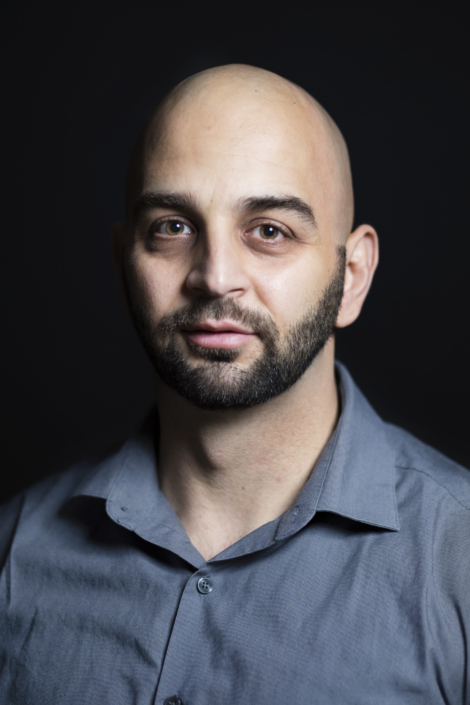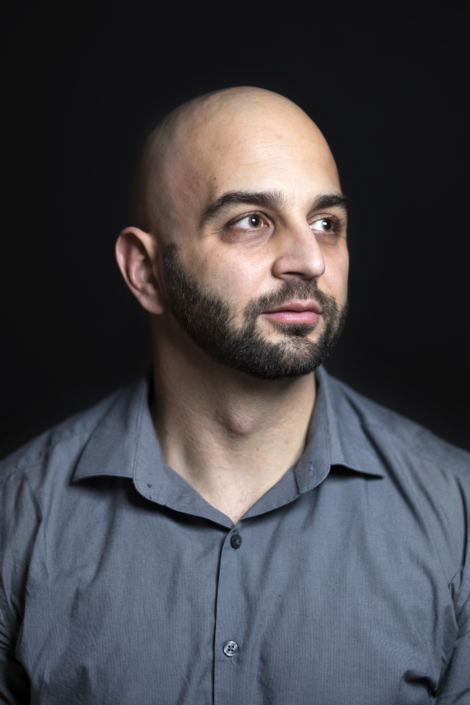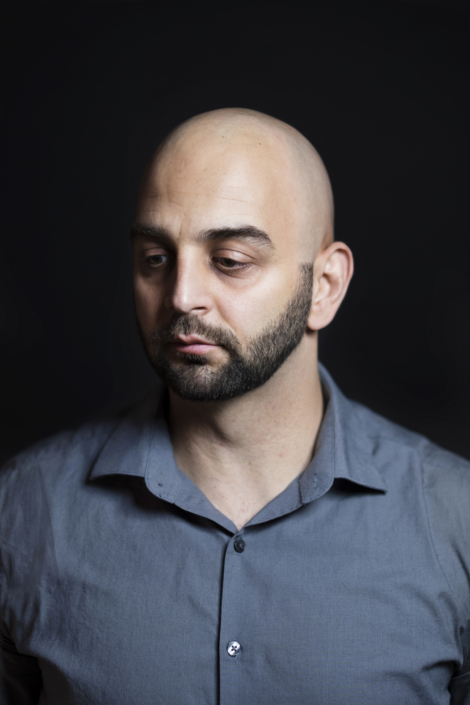Adam Ali is a sessional lecturer at the Department of Language Studies at UTM, where he teaches intermediate and advanced classes in Arabic, and at the Department of Near and Middle Eastern Civilizations at UTSG, where he teaches courses on Islamic history. His research specializes in slavery, warfare, and social unrest in premodern Islamic history. In his spare time, and in an effort to reach outside the academic world with his expertise, he writes for publications like Medieval Warfare Magazine and History Today.
Ali talked with The Varsity about his life and experiences.

THEO ARBEZ/THE VARSITY
The Varsity: Knowing what you know now, what advice would you give to students about growing up?
Adam Ali: Don’t — I mean don’t get older! Life can get stressful, but never forget the things that make you happy. I see a lot of students who are really stressed out in their first and second year of university, and they shouldn’t be; they’re still young. A student’s time at university is supposed to be the best years of their life.
There should be a balance between leisure and pleasure, and hard work and being serious. Work, studying, and achieving results cannot, in my opinion, be done optimally if one is always stressed. Every now and then you need to blow off some steam by doing something that allows you to unwind and ‘recharge.’
I remember in my first year, before I switched to history, I was really miserable. I have come to realize that it is not so much the topic that made me miserable — I was a life sciences student — but rather the attitude that I had and the way I approached studying. I recall studying for a chemistry test: my friends were all going to a concert and I did not join them. I stayed at home to study out of guilt — well, I didn’t really study, I just stared at my books for hours.
Later, in hindsight, I always think of this moment in my academic career when I really wasted a whole day doing nothing. If I had done something relaxing or enjoyable for a while, I think I would have been able to get a few hours of productive work into my day. I felt too guilty to leave my studies to do something enjoyable, but on the other hand I didn’t get anything done sitting at my desk.
When it comes to growing older, one becomes burdened with more responsibilities. My advice is to always make some time to do something enjoyable and refreshing. Having said that, one should also be disciplined enough to get back to work and do what needs to be done. I believe it is possible to achieve great results academically and professionally through hard work, discipline, and removing the stress from one’s life by doing things that allow one to relax and unwind.
Stress negatively affects all facets of life and can have a big impact on students who would otherwise be thriving.
Time management is also important. Students often say they don’t have time for certain things, but manage your time and you’ll get everything done. Most importantly, don’t waste time.

THEO ARBEZ/THE VARSITY
TV: Can you remember something or someone in your life who has changed the way you look at life?
AA: I was failing first-year physics in university. When I started university, I had a plan of sorts. My parents wanted me to become a doctor — a neurosurgeon to be precise. I was an excellent student in high school, so I thought I could do it. My problem was that I wasn’t passionate about it.
Growing up, I was always passionate about history. Not doing as well as I had hoped to in the first couple of years of my university career is what changed my outlook on life. Failing first year physics wasn’t a nice experience, but it was a wake-up call and one of those situations that gave me that nudge to change my path.
The difficulties of my early university career really shaped how I look at academics. It was really unpleasant and stressful when it was happening, but in the long run, these adversities really shaped who I am. I have learned that failure can be as important and formative as success. This goes back to the previous question, but another piece of advice I have for students is to not be afraid of failure or rejection. Life is not just one success following the other — although that would be nice!
I often notice that some of my students seem like they’re having trouble with studies, work, and everything else. I take the time after class to tell them about a failure I’ve had in the past and how that failure helped to get me where I am, and how I learned from it. I do this to encourage them and to show them that we all go through adversities and challenges.

THEO ARBEZ/THE VARSITY
TV: Do you have any advice for students dealing with uncertainty about the future?
AA: It’s good to have a plan for the future. But you have to be aware that some things may not work out the way you want them to. If things do not go according to your ‘master plan’ it is not the end of the world. During my teaching career I have come across students who were accustomed to getting very high grades in the A range. I have had such students who almost had meltdowns when they got 70s on a quiz, test, or assignment.
Don’t stress out over small things if they don’t go the way you want to, and learn from that grade. You are marked on your academic performance. If you do not get the grade you desire, you need to see what you have to do to make it better next time.
It’s great if you always have success, but it’s unrealistic to expect that in your life. You might apply for that dream job or graduate school, but might not get that interview, or get rejected. Personally, the first time I applied to the graduate program that I wanted, I didn’t get in. This is how I ended up with two master’s degrees before doing my PhD.
Just keep going. Don’t let failure or adversity discourage you from trying again. If you do not succeed, try again, or try something else. It is all a part of growth and moving forward.
I got some of my best teaching contracts at one department because I did not get a job that I had applied for elsewhere. If I had succeeded in getting that first position, I would not have applied for the other one, which gave me the opportunity to create and teach some of my best courses. Sometimes there is a bright side to things not working out as you planned. It makes you diversify and look more broadly at your options; sometimes you might find better ones that you would not have found if your original plan had succeeded.
TV: What are you currently working on?
AA: I primarily teach at U of T. Many of the courses that I teach I have created and developed over the years. They are focused courses dealing with specialized topics and have added to the diversity of the courses in the departments where I teach. For example, I teach courses in Arabic. I teach Arabic at the intermediate level, and over the last couple of years, I have developed a couple of advanced reading courses.
These advanced classes really challenge the students who have completed the beginner, intermediate, and advanced Arabic language courses, and are a good way of testing the students’ proficiency. I think they are also a lot of fun. We read a variety of texts from different periods covering many themes. My history courses are on specialized topics such as slavery, warfare, and social unrest and revolts in premodern Islamic history. Geographically speaking, the themes and topics of my courses cover the Middle East, North Africa, Inner Eurasia, and parts of Europe.
Outside the university I’ve recently started writing for historical magazines such as Medieval Warfare Magazine, History Today, and I also write a monthly column or blog for Medievalists.net. I started doing this because not too many people outside the academic circle read academic publications. I feel like professors and academics have so much to offer the general public but there is very little connection between these two realms.
Especially with my focus in history, the Middle East is in the news every day. I would like to demonstrate the diversity of the region and what the Middle East, North Africa, and Inner Eurasia were like historically. We usually get a stereotype of the many peoples inhabiting these areas; however, the history of these regions and their inhabitants is in fact very diverse and interesting.
This is my way of reaching out to the public and sharing with them the stories and accounts that have fueled my passion and interest throughout my career. I am also trying to make an impact on the way that people understand these cultures, societies, and religions outside of the academic environment.
This interview has been edited for length and clarity.
The photos from this article were inspired by Sean Tucker’s Mentors series.
Editor’s note (May 14, 3:08 pm): This article has been updated to describe the lecturer’s professional biography in more detail.
Editor’s note (March 17): This article has been updated to add context on the artist’s inspiration for the series.


